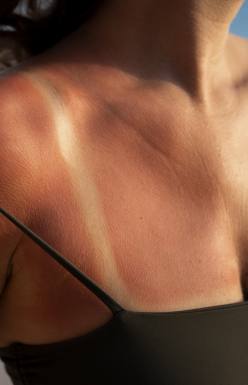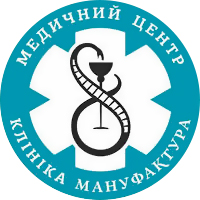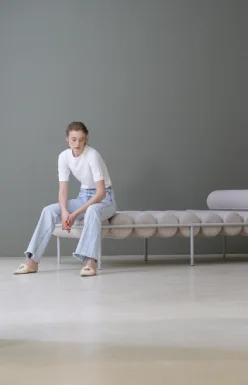
How to sunbathe correctly
Most skin cancers are caused by excessive exposure to ultraviolet (UV) rays. UV rays from the sun and rays from artificial sources - solariums and sun lamps - are equally dangerous. People who are frequently exposed to UV rays have a higher risk of developing skin cancer.
A tan is caused by an increase in the activity and number of melanocytes, the cells that produce the brown pigment melanin that colors the skin. Melanin blocks harmful UV rays to some extent, so people with darker skin are naturally less prone to sunburn than people with lighter skin. But skin cancer occurs when DNA damage from UV radiation triggers a mutation in melanocytes, leading to uncontrolled cell growth. Sunburns increase the risk of skin cancer, but UV exposure itself carries this risk even without causing burns.
Besides to the people with fair skin, blonde, and blue or green eyes, the intensive sun can be especially dangerous to those who:
- earlier, even in childhood, frequently sunburned.
- has many moles, large moles or irregularly shaped moles.
- rich of freckles on the skin.
- works indoors all week, and then spends a lot of time outdoors on weekends.
- spends a lot of time outside, especially during the day.
- has certain autoimmune diseases, for example, systemic lupus erythematosus.
- has hereditary diseases that increase the risk of skin cancer, such as xeroderma pigmentosum or nevoid basal cell carcinoma syndrome (Gorlin syndrome).
- has a disease that weakens the immune system.
- takes medications that reduce or suppress the immune system.
- takes medications that make the skin more sensitive to sunlight.
- have a family history of skin cancer.
- underwent organ transplantation.
The intensity of ultraviolet depends on the day time (the strongest inbetween 10 a.m. and 4 p.m.), the season (strongest in spring and summer), the cloudiness, and the surfaces reflecting and intensifying the UV (the water, sand, snow, asphalt).
You should not avoid outdoors for fear of the sunburns. The lack of outside activity has a very negative impact to your health, from ultraviolet radiation, however, you can protect yourself. Remember to protect your skin and eyes at all times when you're outdoors and even in cloudy weather, not just when you're going to the beach, fishing or the mountains.
The simplest means of sun protection:
- Wear long clothes. Prefer shirts and pants or long skirts instead of shorts and T-shirts. The less exposed body in the sun, the better. Cover areas of the body where there are many or large moles. Dense and dark fabrics transmit fewer rays than thin and light ones.
- Apply sunscreen, lotion, lip balm to exposed areas. It is important to know that sunscreen is only a filter. It does not block all ultraviolet rays and its use does not mean that you can stay in the sun longer. Even with proper use of sunscreen, some UV rays still penetrate, so sunscreen should not be considered the first line of defense. Sunscreens with wide protection (those that include both UVA and UVB protection) and a sun protection factor (SPF) of 30 or higher are recommended. Sunscreen should be applied every 2 hours, and more often if you swim or sweat. "Water-resistant" sunscreens mean they don't wash off immediately upon contact with water, but that doesn't mean they're equally effective against the sun after 30-40 minutes of swimming.
- Wear hats and caps. Shade on the face, tips of the ears and neck is the best protection against burns and UV radiation.
- Wear sunglasses. Pay attention to the lenses when buying glasses. Dark glass does not mean sun protection. The sunglasses are, if the kind of rays and class of sun protection are indicated by the manufacturer on them.
- Look for the shade or partial shade. Intense sun is dangerous. In the shade, you are not only just protected from UV, but you get a healthy amount of it.
Pay special attention to the protection of children's skin. All of the listed outdoor safety measures also apply to them, with a particular caution of the sunscreens and lotion choice. Teach from a young to stay safe in sun.
Be sure to treat sunburns. In case of severe burns and any skin changes that you notice after being in the sun, consult a dermatologist. It is worth consulting a dermatologist and checking moles, pigment spots, spots without pigment before and after the spring-summer season.
Make an appointment for the dermatologist consultation in our Clinic calling us:
- 044 200 11 99
- 093 200 11 90
- 067 200 11 97
- and also via the "Make the appointment" online form on the website
- and via log-in to the "Personal Cabinet" of the website.
Be healthy!
Make an appointment
Your name
Phone number
Direction
Desired date
Comment













